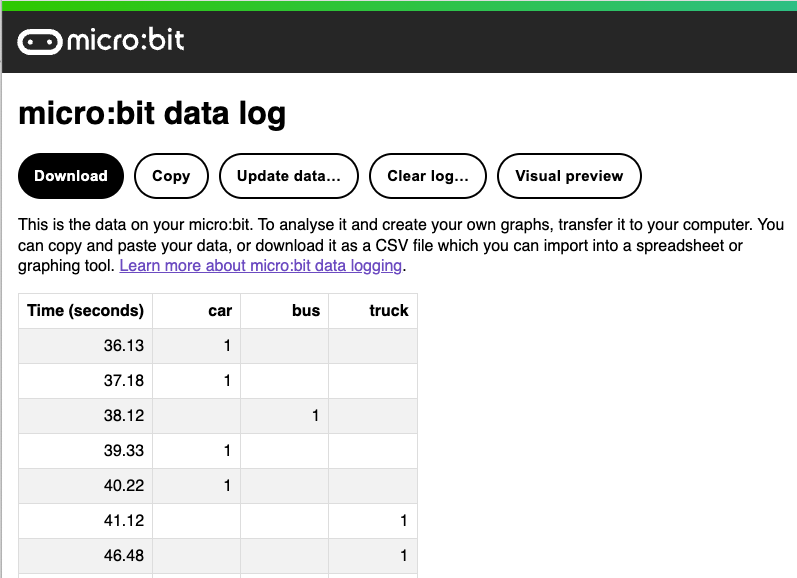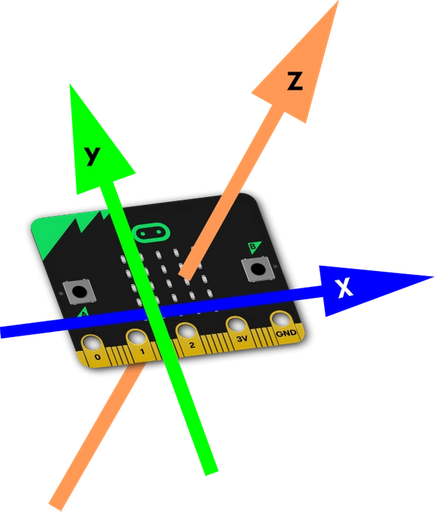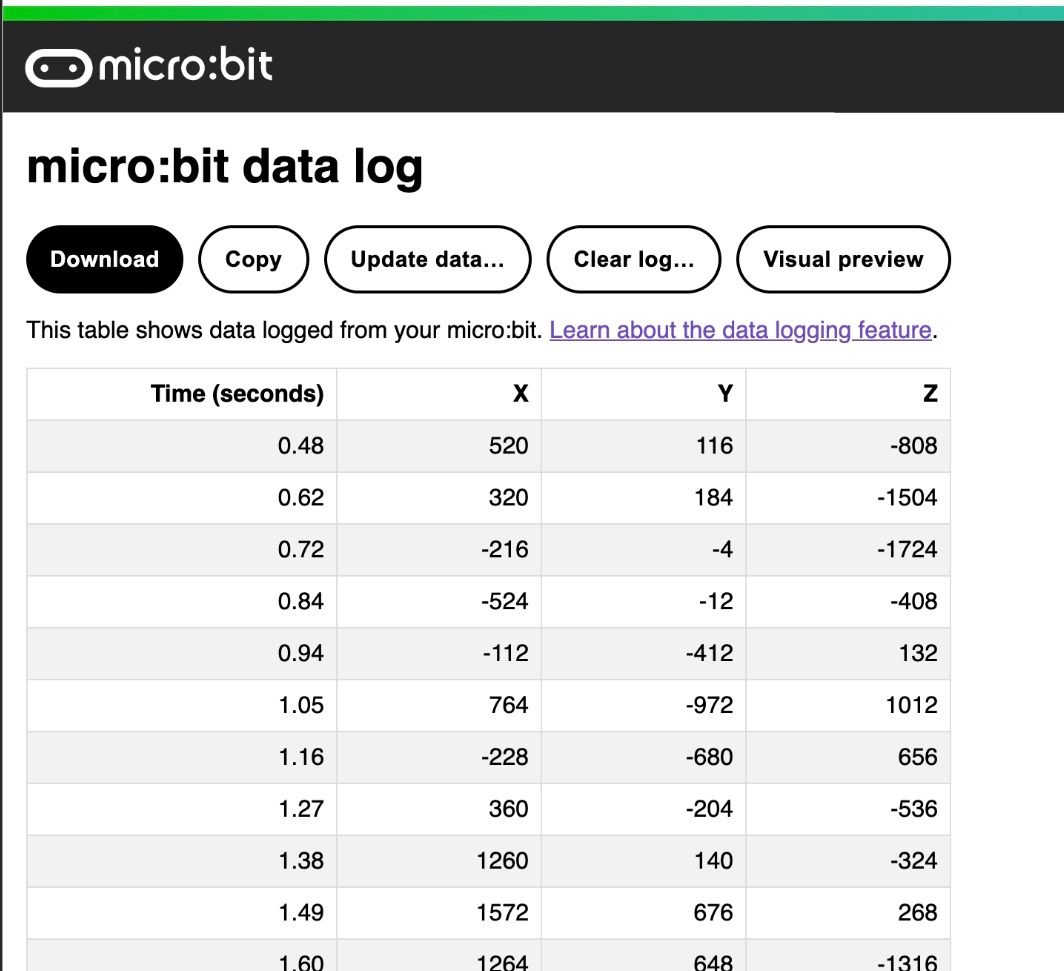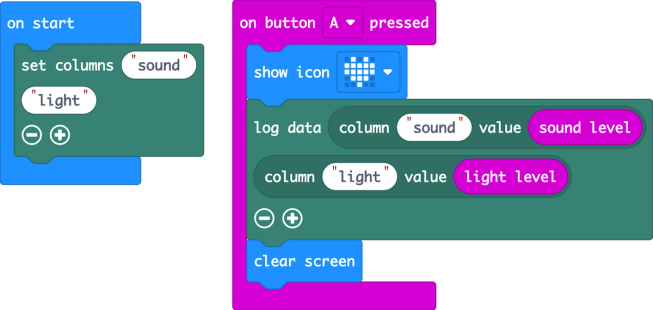Data Logging
- Part 1: Sending Data from one micro:bit to another
- Microbit tutorial 2 – Communicating with microbits
- Learning about Data Logging
You can use the BBC micro:bit V2 with built-in speaker as a data logger, recording data from its built-in sensors. Data is stored on your micro:bit even when its power source is disconnected. - Traffic survey data logger

Use your BBC micro:bit as a data-logger to survey things you see, like different kinds of traffic or wildlife, or answers to questions. - Movement data logger
Data from the accelerometer has been recorded in three dimensions:


A simple way to record, store and analyse environmental data. You can use the BBC micro:bit V2 with built-in speaker as a data logger, recording data from its built-in sensors. Data is stored on your micro:bit even when its power source is disconnected.
-
Try out data logging in your classroom with three new projects
With a few blocks of code, you can capture, store and visualise real-world data from the micro:bit’s built-in sensors for temperature, light, sound, movement and magnetism. Data logging enables your students to carry out meaningful scientific experiments, and to learn about how to collect reliable data, visualise and interpret it.
- Max-min temperature loggerTurn your micro:bit into a self-contained data logger that records maximum and minimum temperature readings, and stores them so it keeps the data even if the batteries run out or you disconnect the power.
- Recording Light/Temperature
 This code will make the micro:bit forever send the light level data (with the label “x” on it) up the USB cable to your computer. You’ll notice the simulator on the left of the screen has changed slightly – there is a purple button which says “show console – simulator”. We can click on it and look at what datalogging looks like.
This code will make the micro:bit forever send the light level data (with the label “x” on it) up the USB cable to your computer. You’ll notice the simulator on the left of the screen has changed slightly – there is a purple button which says “show console – simulator”. We can click on it and look at what datalogging looks like. - Wireless Remote Weather Station with micro:bit
In this tutorial, we will utilize MakeCode’s radio blocks to have one micro:bit transmit a signal to a receiving micro:bit on the same channel! This is useful if your weather station is installed in a location that is difficult to retrieve data from the OpenLog. We will explore a few different ways to send and receive data. - Remote data collection
A simple way to record, store and analyse environmental data
You can use the BBC micro:bit V2 with built-in speaker as a data logger, recording data from its built-in sensors. Data is stored on your micro:bit even when its power source is disconnected. - Writing Data
While you’re using MakeCode, all data written by the serial functions is recorded by the MakeCode editor. This happens when you try your code in the simulator and also when the micro:bit is connected to a computer running the MakeCode app with USB - Micro:bit: Wirelessly Stream Accelerometer Data to MakeCode! (YouTube Video)
Here’s a quick intro to configuring MakeCode to display data being streamed wirelessly (via Bluetooth)!
